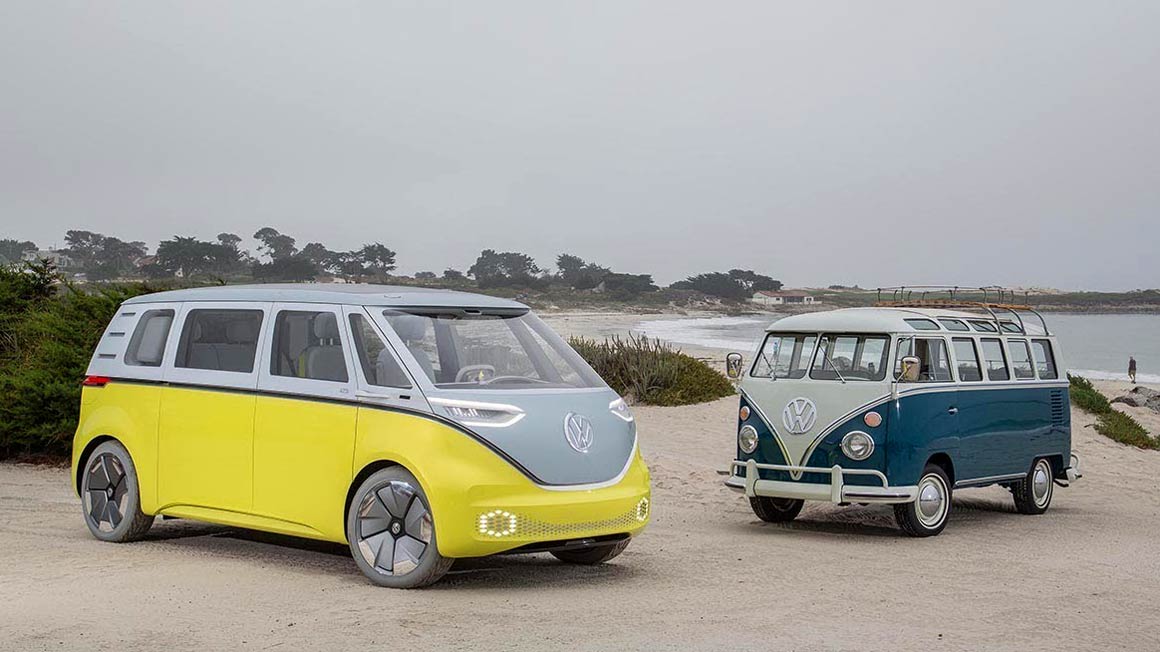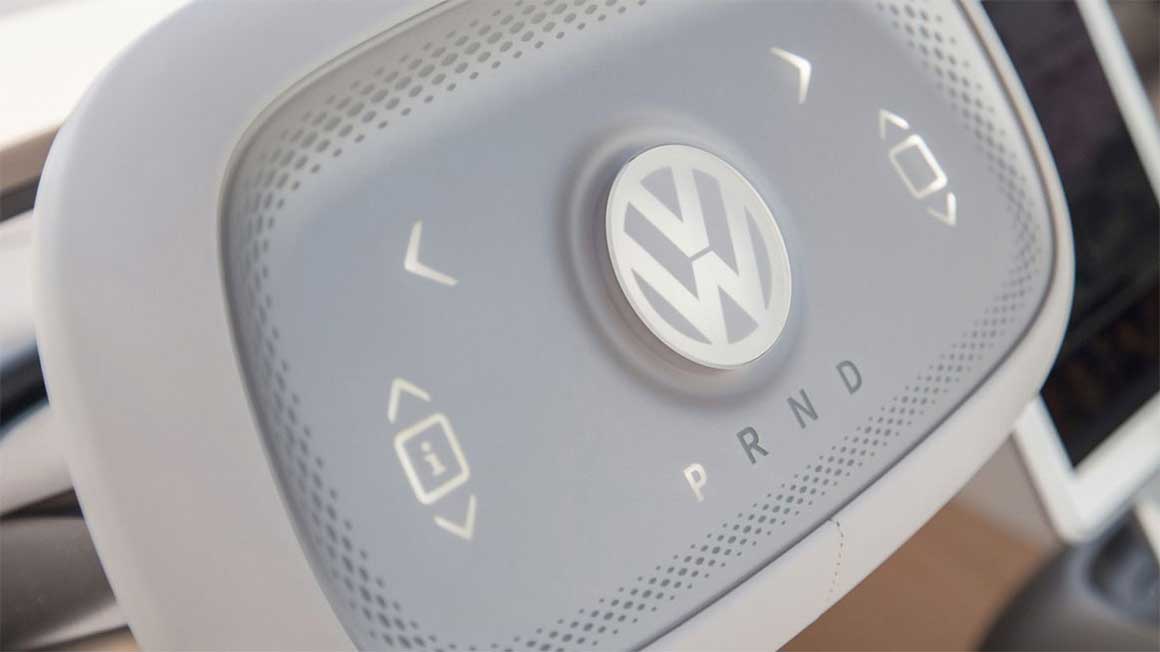It’s real and it’s nearly here: the iconic VW Kombi made popular in the 70s by hippies and travelers is getting a makeover and being reborn as the all-electric I.D. Buzz.
While it’s not available to buy just yet, CEO Herbert Diess has confirmed in an interview published in the VW group’s internal newsletter that the electric version of the Kombi (originally known as the Microbus in the US) will indeed go into production by 2022, along with 9 other fully electric models.
The German automaker originally showed off the concept bus at last year’s Pebble Beach motor show, to the excitement of fans of the iconic brand.
A streamlined, futuristic version of its previous incarnation, the I.D. Buzz concept retains the familiar rounded profile of the original Kombi, albeit somewhat more aerodynamic.
Batteries will sit low on the vehicle’s flooring, and as the electric powertrain will take up considerably less space, the nearly 5 metre long I.D. Buzz will boast huge amounts of space inside, says Volkswagen.
A rounded steering will retract for Level 3 autonomous mode (this was not a feature in the concept vehicle), and it comes many other modern bells and whistles that will bring the cult Kombi into the future.
There is not a lot to go on currently in regard to specifics or price, but we do know that VW is promising a range of 500-600km for the I.D. family, production and sales for which will be kicked off in 2019 by the compact class I.D. hatch.
The hatch, when it goes on sale, will cost around the same as a diesel Golf (around $A40,000), Jürgen Stackman, board member and head of sales and marketing said at last year’s Frankfurt Motor Show.

It’s part of a larger plan by Volkswagen to introduce 80 new electric and plug-in hybrid models by 2025, according to the group’s roadmap.
While the automaker had reportedly originally earmarked €20 billion (over $A32 billion) for the development of electric powertrains and batteries to prepare for its shift away from fossil fuels, Diess said in the internal interview, which was conducted with labor head Bernd Osterloh, that this won’t be enough.
“The burden for our company, such as the cost of bringing to market electric cars, will be higher than expected,” he said.
“This is particularly so since some of our competitors have been making more progress.”
According to the comany’s website, it will be investing ‘€50 billion and more…in battery cell procurement over the coming years’.
The German auto group’s other brands have also been making forays into the development of electric vehicles, with Audi introducing it’s all-electric e-tron just last night with ‘a battery the size of a double bed’.

Bridie Schmidt is associate editor for The Driven, sister site of Renew Economy. She has been writing about electric vehicles since 2018, and has a keen interest in the role that zero-emissions transport has to play in sustainability. She has participated in podcasts such as Download This Show with Marc Fennell and Shirtloads of Science with Karl Kruszelnicki and is co-organiser of the Northern Rivers Electric Vehicle Forum. Bridie also owns a Tesla Model Y and has it available for hire on evee.com.au.





